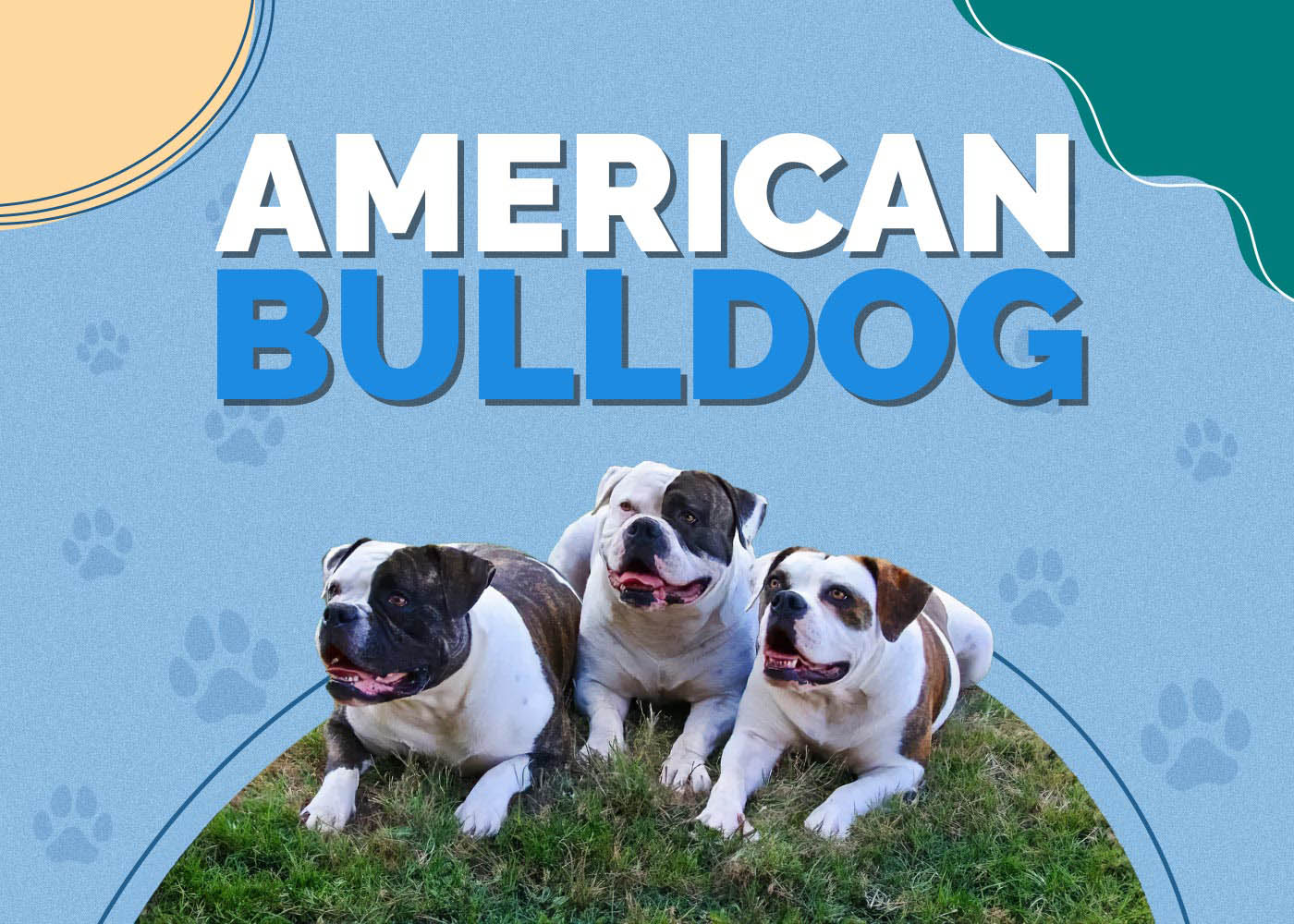Dog Repellent Plants: 7 Plants That Deter Dogs (With Pictures)

Updated on
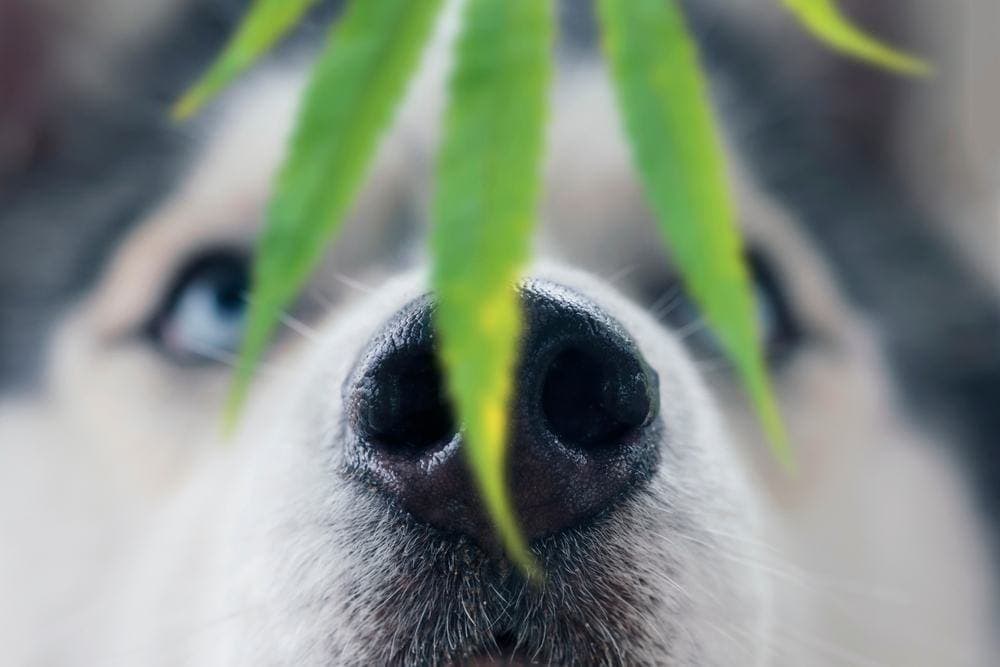
Fences can deter the neighbor’s dog. They can also prevent your own dog from getting to areas you don’t want them, such as the koi pond or the kid’s play area. However, they aren’t always a viable option. You might not want fences littering your flower beds or preventing you from seeing the pond that you have painstakingly dug out and stocked with expensive fish.
There are chemical repellents on the market, but these are harsh and can have adverse effects on dogs, and they are rarely as effective as the manufacturers claim. Natural alternatives do exist. In particular, you can add dog-repellent plants to your yard and the smell or even the look of these will naturally prevent any dog from passing.
Just like the chemical repellents, there is no guarantee that a particularly odorous plant will deter dogs from an area of your garden, but they are healthier than spraying chemicals all over your herbaceous border to try and stop next door’s dog from pooping where you don’t want them to.
Essentially, you’re looking for plants that have a strong smell: a smell that the typical dog doesn’t enjoy. This can seem challenging, considering dogs love nothing more than getting up close and personal with poop, garbage, and other bad smells, but the following plants have proven successful with other dog owners and keen gardeners.
The 7 Plants That Repel Dogs
1. Chili Pepper
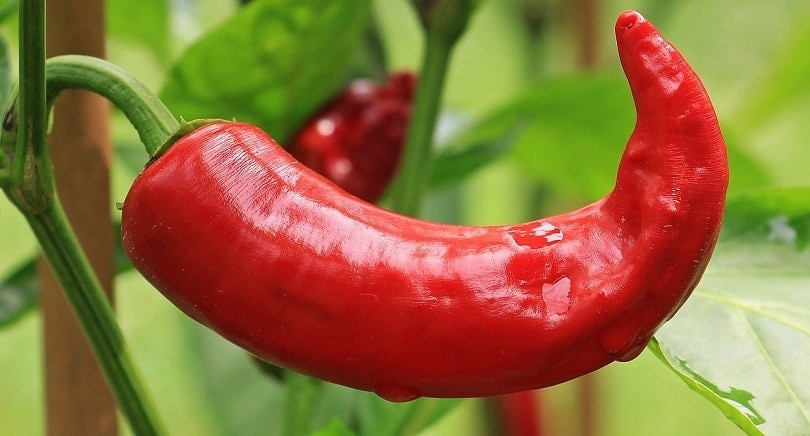
Chili peppers are used in a lot of commercial dog repellents, primarily because capsicum acts as an irritant to dogs. It will cause itching and inflammation around the sensitive area of the nose. While the chili pepper has less of a scent while it is growing and before it has been crushed, if a dog naturally dislikes the smell, they will steer clear of this plant.
Chili plants are also surprisingly easy to grow in some climates, and they only take a few months before the chilies start to appear.
2. Citronella
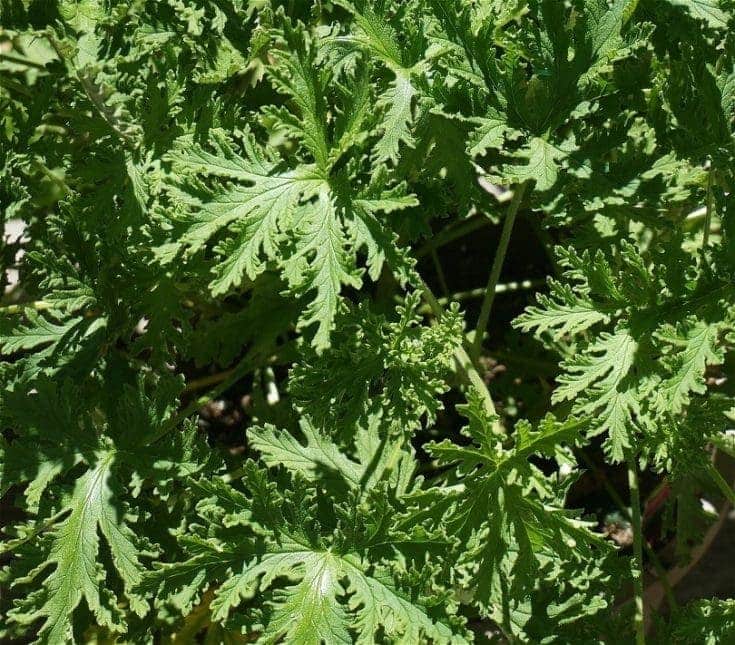
Citronella is well known for its mosquito-repelling capabilities, but according to some gardeners, it works effectively well to deter cats and dogs. Citronella sprays are available, or you can grow the plant itself. Citronella oil comes from the lemongrass plant, and this requires a very hot climate, so unless you live in the hottest parts of the country, you will find it a challenge to grow this natural canine repellent.
3. Plectranthus Canina
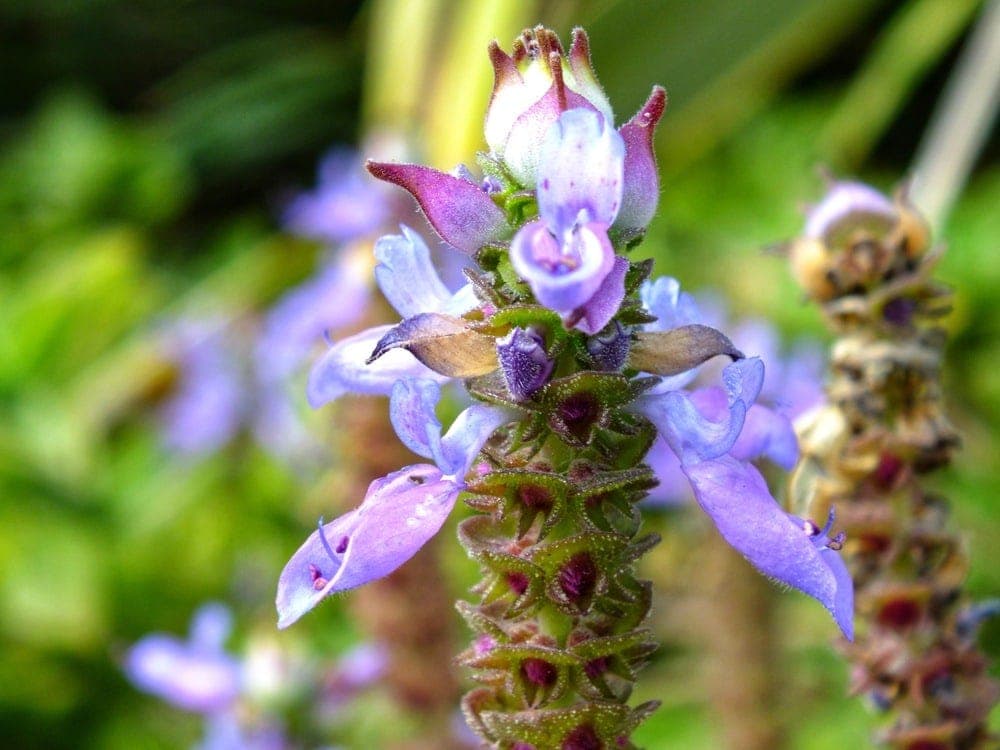
Plectranthus Canina, also known as the “Scaredy Cat” plant, is known for its ability to deter cats thanks to its smell. It has also proven effective at scaring dogs away. Despite its effectiveness at deterring animals, humans won’t notice the smell unless they rub against it or intentionally rub the plant to release the odor, making it a great addition to the garden.
4. Rue
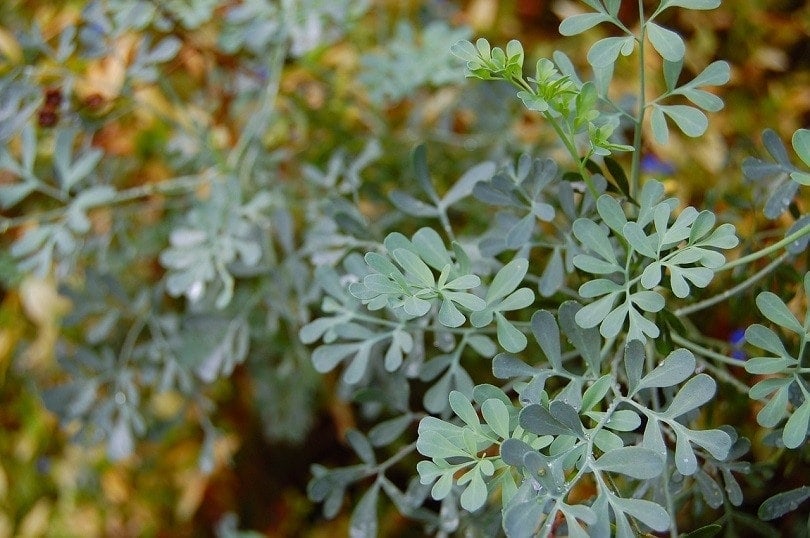
Rue is considered an attractive shrub with a blue-green hue. Rue is known to keep ants away from plants and is regularly recommended as a natural ant repellent. Dogs are not keen on the way the plant feels, so it can be used to prevent canine invaders. Do not use this plant to prevent dogs from getting into a child’s play area, however, as it can be toxic to humans and especially to small children.
5. Citrus Trees

Citrus trees have a lot going for them. They look good, can produce a lot of lemons or oranges, and represent a major accomplishment when you have a row of them growing in your garden. The strong citrus smell is also known to deter cats and dogs. However, they do take a long time to grow, so if you have an urgent need to prevent pets from getting into a particular area of the garden, you will either have to buy fully established citrus trees or use one of the other options in this article while you wait for them to reach maturity.
6. Curry Plant
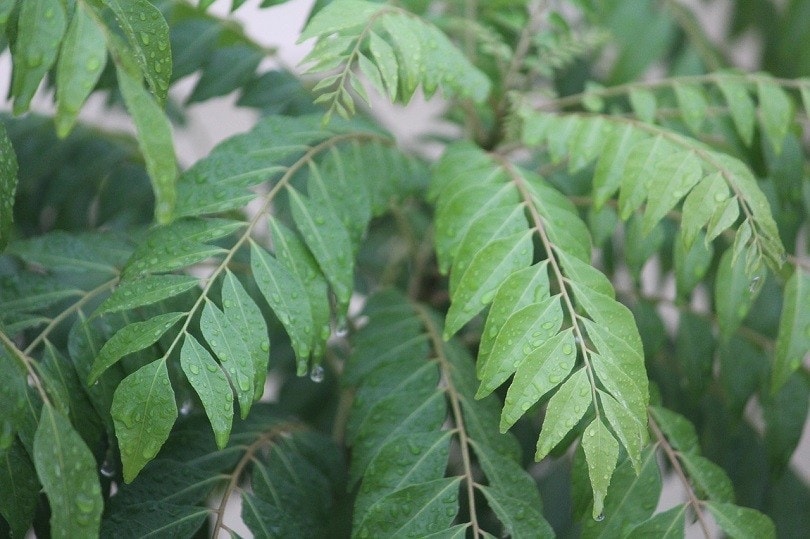
Helichrysum Italicum, or the curry plant, is a great addition to the garden. It has a silvery look and when you rub it, it has a very strong curry aroma. It is actually part of the daisy family and it can do a really good job of preventing cats and dogs from getting near it. The curry plant can be susceptible to frost, though, so it will need a well-protected spot if you intend to grow it outdoors.
7. Lavender
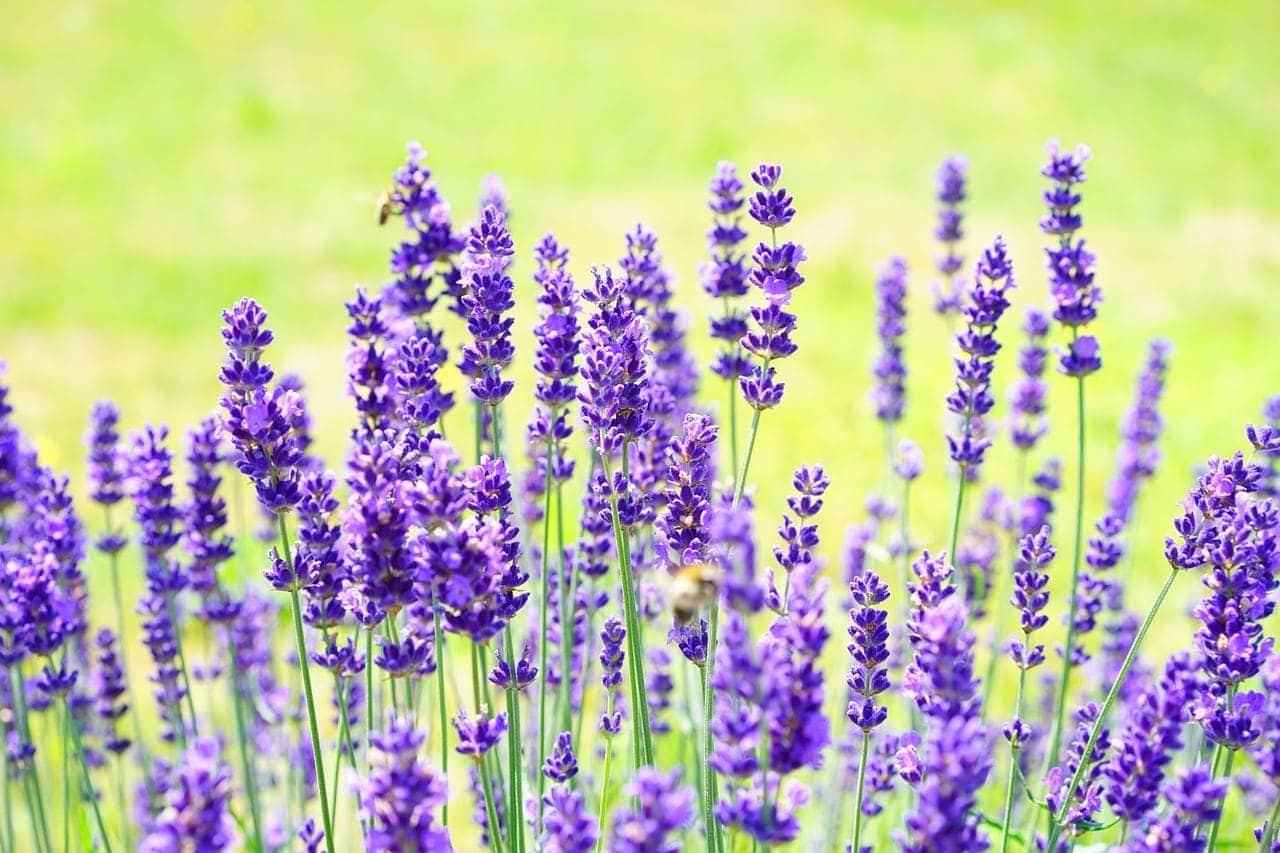
Lavender is one of the most popular scents with humans. We use it to make everything from essential oils to scented pillows, and it is said to give a blissful and restful aroma, hence its use in items like incense and pillows. While we humans love it, it has proven less popular with dogs. It is also a relatively easy plant to grow, and it will give off an incredible smell when the wind blows or when you brush against it. Similarly, when animals brush against it, the smell will likely halt the progress of any dog or cat.
Avoid Toxic Plants
There are other plants that have shown some success in repelling dogs and cats, and you may find your own herbaceous solutions to the common problem of keeping unwanted canine visitors away. However, you should always ensure that the plants you use are not toxic. This is especially true if you are using plants to keep dogs away from a child’s play area because they can be toxic to children as well as dogs.
Other Safe Dog Repellents
The plants above have shown some anecdotal success in deterring dogs and cats. Their strong aroma means that if an animal doesn’t like the smell they give off, they will steer clear of it. Most dogs learn quickly that they don’t like the smell, so they won’t return to the area in a hurry, either. However, there is no real empirical proof that scented plants work on all dogs. For example, while a lot of dogs do dislike the smell of the curry plant, others love it. The same goes for lavender. If you don’t find success using the plants we’ve listed, there are other options to consider.
Add Uncomfortable Mulch
Dogs have sensitive paws and pads. As such, they don’t like to walk on mulch, especially uncomfortable mulch like chunky pinecones or thorny plant clippings. Even large wood chips can put doggy invaders off visiting your property. If you are trying to protect fragile plants, consider adding these substrates to the ground and you should see results.
Fence Off the Area
Fences offer a physical barrier method to prevent unwanted guests. They can be placed around the border of your property to effectively stop the neighbor’s dogs from getting in. You can also add fences in the middle of your garden around areas that you want to cut off. If you have a child’s sandpit, for example, the last thing you want is for your dog to use it as a giant litter tray. Fences don’t have to be large, obtrusive to the eye, and ugly.
Look for fence panels that are in keeping with your garden design and paint them natural colors. You can even turn them into a focal point for your garden design.
Conclusion
In this article, we have listed seven dog-repellent plants that have shown some success in keeping dogs at bay. However, it should be noted that not all of these plants will work with all dogs. Consider using fences and walls as a permanent solution, and experiment with the plants that you have to find those that the dog in question doesn’t like. You can also buy natural dog repellents, although these will usually use derivatives of the plants above to create a strong odor.
That means if the plant itself doesn’t work then a repellent that contains those plants is unlikely to work either.
Featured Image Credit: Anton Watman, Shutterstock





